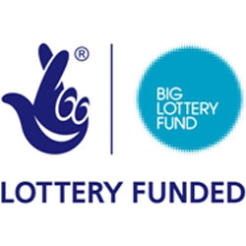Nick Cater queues to find mixed news from the National Lottery sale to the Ontario Teachers' Pension Plan.
Next month's National Lottery full-year stats may show record sales, with good causes funding at £24bn, but what of the future as its £389m sale to the Ontario Teachers' Pension Plan is reviewed by the National Lottery Commission regulator?
Normally sure-footed Camelot boss Dianne Thompson – the only guaranteed National Lottery millionaire after her salary package jumped almost 11 per cent to £1,069,000, according to the latest annual report – faces a few problems.
True, Lottery takings have boomed in the recession, helping charities do well as those doing badly tried to gamble their way out of poverty or forget their debts.
Yet Camelot, which talks about "having a flutter" rather than anything more compulsive and likes to use the good causes as a marketing tool, was unable to make much difference to the new Committee of Advertising Practice promotional guidelines that will, for the first time, treat all lotteries much like other gambling.
Gamblingcompliance.com pointedly quoted Wiggin and Co specialist lawyer Jason Chess saying that "regulation is long overdue", given that a high percentage of the public, "many of who are the least able to afford it", are "gambling with virtually no chance of winning".
But advertising is only one issue. Camelot's sale price balanced both its limited profit margins from the existing lottery, and its potential for growth from other sources.
Bringing in more income to benefit shareholders and charities means Camelot is looking to expand commercial services offered through the infrastructure of its 28,500 terminals, from taking utility payments and council tax to selling mobile top-ups.
Camelot is suggesting that 80 per cent of these new profits would go to good causes, though this could change as plans progress and regulators get involved.
But Dianne T's plans to divert income away from non-Lottery retailers have been criticised by MPs, as this could close more Post Offices and corner shops, and thus undermine local communities and increase the costs of the poor.
Since C2, D and E social groups typically make more use of cash payments, other MPs talk of "an ongoing and perverse campaign of income distribution", coaxing some of the poorest into paying more "for the entertainment and recreation of higher income groups".
Errors that crept into the expansion proposal made by Camelot to the National Lottery Commission, elevating "exploratory talks" with the Post Office into a partnership, are still being corrected. The Financial Times has reported that the Co-op Bank is seeking a similar correction.
Could these plans backfire on charities, not least from the queues as millions of extra transactions go through the tills? Camelot confidently "can see no negative impact on consumer queuing in retail".
But Dominic Taylor, chief executive of rival bill-payments firm PayPoint, has been quoted saying: "Branching out into bill payments will mean delays at the tills, Lottery players being turned away, further Post Office closures and less money for good causes."
Charities wishing to examine the expansion proposals – or comment on them before 5pm on Monday 26 April 2010 – can find full details on the National Lottery Commission website.









